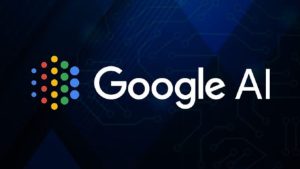Google’s AI Search Tool: A Dream for Users, A Nightmare for News Publishers Introduction Hi, I’m Fred Wilson, a blog writer who loves to explore the latest trends and innovations in the digital world. In this article, I’m going to talk about Google’s AI search tool, a new experiment that uses generative AI models to
Google’s AI Search Tool: A Dream for Users, A Nightmare for News Publishers
Introduction
Hi, I’m Fred Wilson, a blog writer who loves to explore the latest trends and innovations in the digital world. In this article, I’m going to talk about Google’s AI search tool, a new experiment that uses generative AI models to create summaries of information from around the web in response to some search queries. I’ll explain what this tool is, how it works, and why it could be a dream for users, but a nightmare for news publishers. I’ll also discuss the ethical implications of this tool for the ownership, quality, and diversity of information on the web.
What is Google’s AI Search Tool?
Google’s AI search tool is called Search Generative Experience (SGE) and it is currently being tested in the United States, India, and Japan . SGE is an opt-in experiment for users, who will help develop and improve the product, and it aims to send valuable traffic to a wide range of creators, including news publishers.
SGE uses generative AI models to create summaries of information from various sources on the web, such as news articles, blogs, videos, podcasts, etc., in response to some search queries. For example, if you search for “how to make pizza dough”, SGE may show you a summary of the steps, ingredients, and tips from different websites, along with links to the original sources. SGE does not replace the traditional search results, but rather complements them with a new way of accessing information.

Picture by: https://analyticsdrift.com/researchers-at-google-ai-introduce-unified-language-learner/
How Does Google’s AI Search Tool Work?
Google’s AI search tool works by using natural language processing (NLP) and natural language generation (NLG) techniques to understand the user’s query and generate a summary of relevant information from the web. Google says that SGE uses a variety of signals to select the sources and content to summarize, such as quality, relevance, diversity, and freshness.
Google also says that SGE respects the rights and preferences of the creators, and that it follows the robots.txt protocol, which allows webmasters to specify how their content can be crawled and indexed by search engines. Google also announced a new tool called Google-Extended in late September 2023, which gives publishers the choice to prevent their content from being used by Google to train its AI models.
Why is Google’s AI Search Tool a Dream for Users?
Google’s AI search tool is a dream for users who want quick and easy access to information from various sources, without having to click on multiple links or scroll through long pages. SGE offers a convenient and efficient way of finding answers, learning new things, or exploring topics of interest. SGE also provides a diverse and comprehensive overview of the information available on the web, giving users a broader perspective and a richer experience.
Some of the benefits of Google’s AI search tool for users are:
- It saves time and effort by providing a summary of information in one place.
- It reduces cognitive load by simplifying and organizing the information.
- It enhances comprehension by using clear and concise language.
- It increases engagement by showing relevant and interesting information.
- It encourages curiosity by offering links to the original sources for further exploration.

Photo by Kai Wenzel on Unsplash
Why is Google’s AI Search Tool a Nightmare for News Publishers?
Google’s AI search tool is a nightmare for news publishers who fear losing control over their content and revenue. News publishers rely on web traffic to generate income from advertising or subscriptions, and they invest a lot of resources and expertise to produce high-quality and original content. However, SGE could reduce the number of visitors to their sites by keeping them on Google.com or by showing them AI-generated summaries instead of links to their original content.
Some of the challenges of Google’s AI search tool for news publishers are:
- It decreases web traffic by satisfying the user’s information needs on Google.com.
- It reduces revenue by lowering the exposure and click-through rate of ads or subscriptions.
- It dilutes brand recognition by obscuring the identity and value of the publishers.
- It undermines credibility by using their content without their consent or attribution to train its AI models .
- It creates competition by generating summaries that may be better or more appealing than their own content.
What are the Ethical Implications of Google’s AI Search Tool?
Google’s AI search tool is not only a technical innovation, but also a social and ethical experiment. It raises questions about the ownership, quality, and diversity of information on the web, and the impact of generative AI on the users and creators of online content. Some of the ethical implications of Google’s AI search tool are:
- It challenges the intellectual property rights of the publishers, who may not be compensated or credited for their content that is used by Google to power its AI tools.
- It affects the quality and accuracy of the information, as the AI-generated summaries may not reflect the original intent, tone, or context of the sources, or may contain errors or biases.
- It influences the diversity and representation of the information, as the AI models may favor certain sources, topics, or perspectives over others, or may exclude or marginalize some voices or viewpoints.

Image by: https://hgs.cx/
Conclusion
Google’s AI search tool is a new experiment that uses generative AI models to create summaries of information from around the web in response to some search queries. It is a dream for users who want quick and easy access to information from various sources, but a nightmare for news publishers who fear losing control over their content and revenue. The ethical implications of this tool are also significant, as it raises questions about the ownership, quality, and diversity of information on the web. As generative AI becomes more advanced and widespread, it will pose new challenges and opportunities for both users and creators of online content.
Table: Pros and Cons of Google’s AI Search Tool
| Users | News Publishers |
|---|---|
| + Saves time and effort | – Decreases web traffic |
| + Reduces cognitive load | – Reduces revenue |
| + Enhances comprehension | – Dilutes brand recognition |
| + Increases engagement | – Undermines credibility |
| + Encourages curiosity | – Creates competition |

















Leave a Comment
Your email address will not be published. Required fields are marked with *